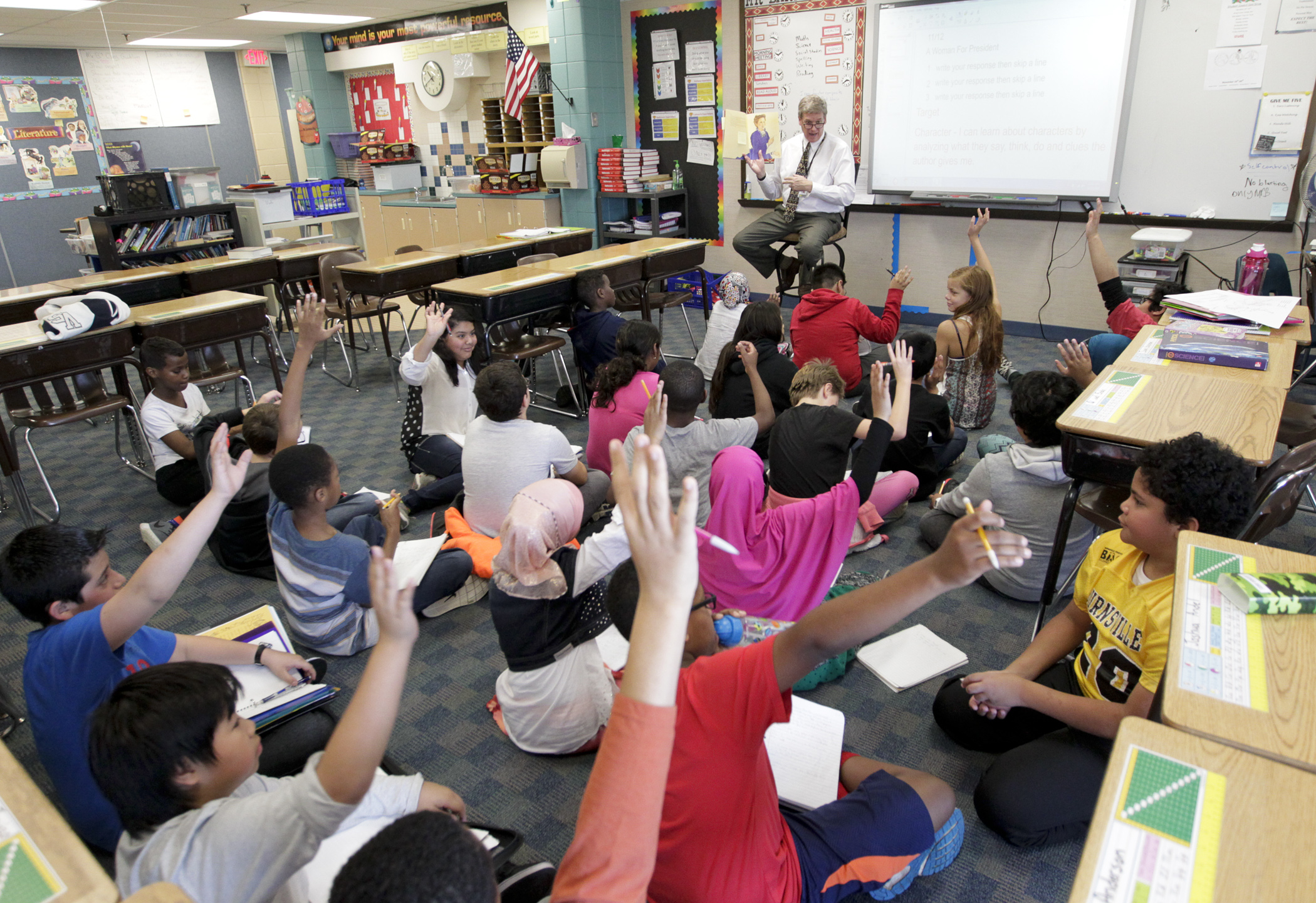Lawmakers hear House DFL’s proposed policy overhaul of Minnesota K-12 schools

Exactly one month ago, the Department of Education presented Gov. Tim Walz’s recommended policy changes to the state’s K-12 education system.
Now it is time for the House to speak.
The House Education Policy Committee held a walkthrough of a proposed delete-all amendment to HF1269 Tuesday. Additional hearings for member discussion, further amendments, and ultimate committee action are expected Wednesday and Friday.
Rep. Laurie Pryor (DFL-Minnetonka), the committee chair, said the bill is still a work in progress, so many adjustments are expected before the omnibus proposal is sent to its next stop, the House Education Finance Committee.
The hearing largely consisted of the nonpartisan House Research Department summarizing the amendment. Below is an article-by-article breakdown of what changes could be in store for Minnesota’s students and teachers.
Article 1 – General Education
The most notable item of interest in this small article is a vanishing act. A departmental reporting requirement for the test scores of homeschool students, which triggered howls of protest from homeschool parents at last month’s hearing, is absent from the amended bill.
Article 2 – Education Excellence
This article opens with several proposed changes to the state’s academic standards and high school graduation requirements. Namely:
- the arts would move from a locally optional to a statewide required standard, while media arts would be added as one of the subcategories districts could offer to students;
- mathematics standards would be revised to specify certain compulsory courses; and
- students would have to pass a class on government and citizenship to graduate high school, starting with those who begin ninth grade in the 2024-25 school year.
Proponents of embedding ethnic studies within the state’s high school graduation requirements did not get their wish. However, strategic plans adopted by local school boards after June 30, 2024, would have to include ethnic studies curriculum that is “antiracist” and “culturally sustaining.”
The department would be granted expanded rulemaking authority, as language prohibiting the department from altering academic standards without explicit legislative authorization would be stricken from statute.
A number of changes regarding student behavior and discipline are also laid out:
- “malicious and sadistic conduct” would be expressly prohibited in schools;
- students in kindergarten to grade 3 could not be suspended or expelled except in extreme circumstances;
- school employees and school resource officers could not place a place a student in “prone restraint” or physical holds that restrict breathing; and
- denying a student their recess as a punishment would be severely curtailed.
A postsecondary school participating in the postsecondary enrollment options program could no longer require a faith statement from applicants nor base an admission decision on “race, creed, ethnicity, disability, gender, or sexual orientation or religious beliefs.”
The Online Learning Act would be repealed and replaced by the Online Instruction Act to better define requirements and expectations for digital learning.
Article 3 – American Indian Education
This article includes many changes long sought after by Indigenous Minnesotan educational advocates. Highlights include:
- replacing Columbus Day with Indigenous Peoples’ Day on the school calendar;
- embedding Indigenous education into the state’s academic standards during the next 10-year review;
- prohibiting schools from using Indian symbols or names as mascots;
- requiring American Indian culture and language classes in schools with sufficient numbers of Indian students as defined in the article; and
- affirming the rights of Indigenous students to sport tribal regalia at graduation ceremonies and to “carry a medicine pouch containing loose tobacco intended as observance of traditional spiritual or cultural practices” while in school.
Article 4 – Teachers
Much movement would be seen in the laws regarding teachers. Most notably the bill would do this by:
- allowing Tier 1 teachers to join a union;
- exempting Tier 1, 2, and 3 teachers of world languages and culture, performing arts, and visual arts from the requirement to hold a bachelor’s degree;
- shortening the probationary period under various circumstances;
- instituting a short-call substitute teacher pilot program; and
- placing class sizes, student testing, and student-to-personnel ratios under the “terms and conditions of employment” to be negotiated during collective bargaining.
Article 5 – Charter Schools
Updates to laws governing charter schools would stay largely the same. The most substantive changes are:
- charters would have to abide by the Education for English Learners Act in the same manner as local districts; and
- charters would have to make an enrollment preference for Minnesota residents and admission for these in-state pupils would have to be free.
Article 6 – Special Education
When it comes to special education, the bill would update departmental reporting requirements, expand parental school choice, and increase student learning options.
Article 7 – Nutrition and Libraries
As a response to the Feeding Our Future scandal, departmental oversight of the federal summer food service program would be modified. Applicants would have to prove their financial eligibility for the program via stringent documentation requirements.
Related Articles
Search Session Daily
Advanced Search OptionsPriority Dailies
Speaker Emerita Melissa Hortman, husband killed in attack
By HPIS Staff House Speaker Emerita Melissa Hortman (DFL-Brooklyn Park) and her husband, Mark, were fatally shot in their home early Saturday morning.
Gov. Tim Walz announced the news dur...
House Speaker Emerita Melissa Hortman (DFL-Brooklyn Park) and her husband, Mark, were fatally shot in their home early Saturday morning.
Gov. Tim Walz announced the news dur...
Lawmakers deliver budget bills to governor's desk in one-day special session
By Mike Cook About that talk of needing all 21 hours left in a legislative day to complete a special session?
House members were more than up to the challenge Monday. Beginning at 10 a.m...
About that talk of needing all 21 hours left in a legislative day to complete a special session?
House members were more than up to the challenge Monday. Beginning at 10 a.m...